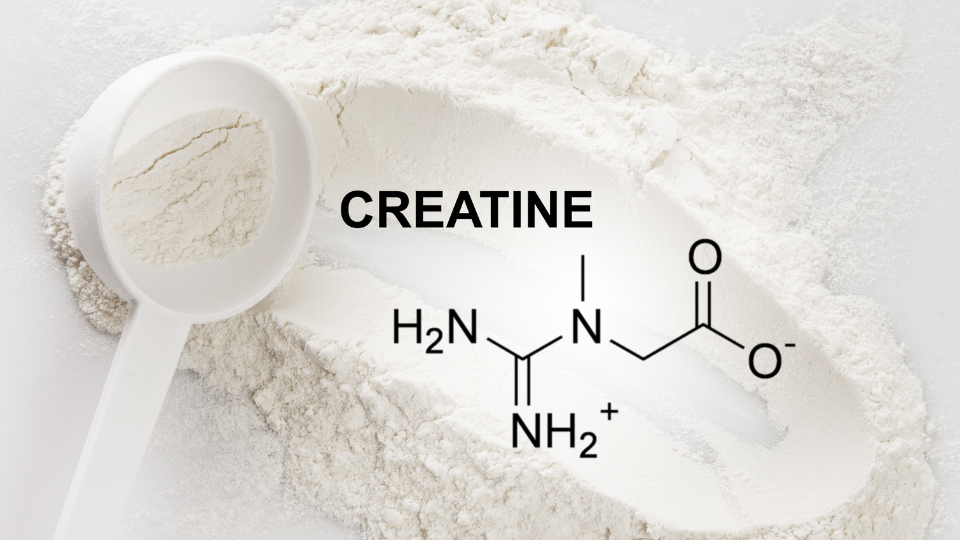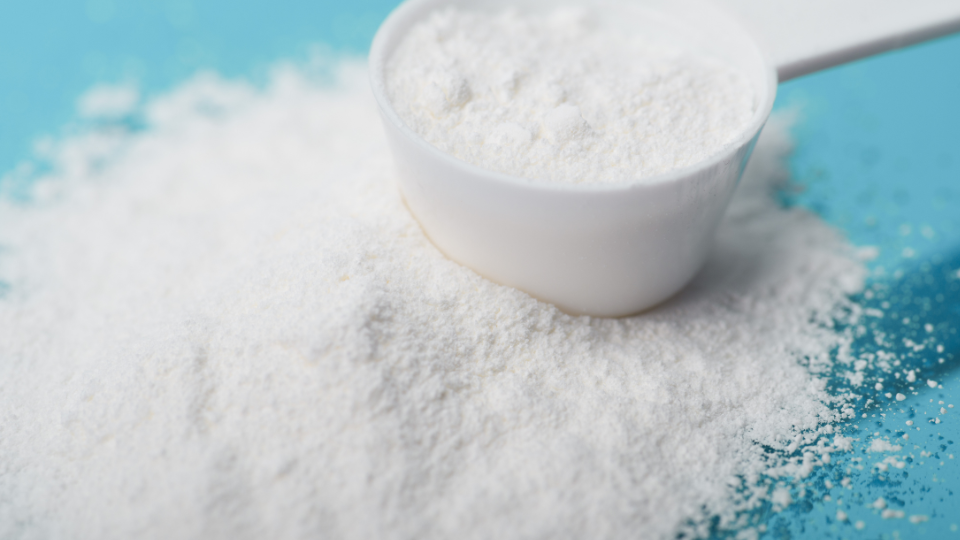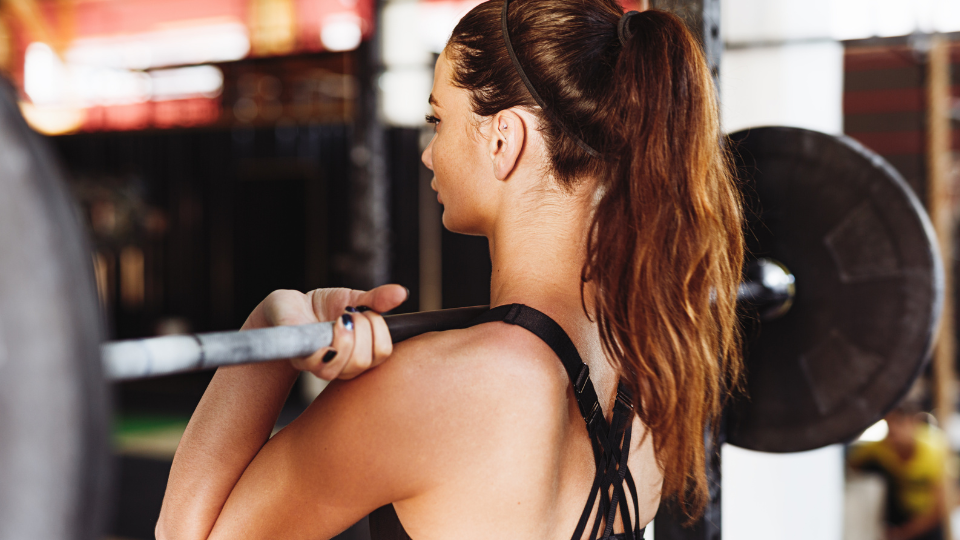This site contains product affiliate links. We may receive a commission, at no cost to you, if you make a purchase after clicking on one of these links. See Disclaimer.
Introduction: Understanding Creatine Benefits for Exercise Performance
Creatine, a naturally occurring compound found in small quantities in certain foods (such as red meat) and synthesised by the body, is a powerhouse supplement that has gained immense popularity in the fitness world. It plays a vital role in cellular energy production, especially during high-intensity exercise such as weightlifting and sprinting. When you supplement with creatine, you provide your muscles with the fuel they need to perform at their best. In this article, we will delve into the world of creatine, exploring its different forms and focusing on why women, in particular, should consider incorporating creatine monohydrate into their fitness routines.

So let’s delve deeper into the science behind how supplementing with creatine works and its impact on ATP (adenosine triphosphate) production:
When you supplement with creatine, you’re essentially providing your body with a readily available source of phosphocreatine, a molecule that plays a vital role in ATP regeneration. ATP is the body’s primary energy currency, fuelling various cellular processes, including muscle contractions during exercise. During high-intensity activities, ATP is broken down into ADP (adenosine diphosphate) and inorganic phosphate, releasing energy that powers muscle contractions. However, our muscles have only a limited store of ATP, which is quickly depleted during intense bouts of exercise. This is where creatine comes into play.
Creatine helps replenish ATP levels by donating its phosphate group to ADP, converting it back into ATP through a process called phosphorylation. This newly regenerated ATP can then be used again for energy, allowing you to sustain high-intensity efforts for longer periods. By increasing the phosphocreatine pool in muscles, creatine supplementation effectively extends the duration of peak physical performance, enabling you to lift heavier weights, run faster, and push yourself further during workouts. This mechanism not only enhances muscle strength and power but also contributes significantly to the improved endurance observed in individuals supplementing with creatine.

Types of Creatine Supplements: A Comprehensive Guide
Before we dive into the benefits of creatine supplementation for women, let’s take a closer look at the various forms of creatine available on the market:
- Creatine Monohydrate: This is the most researched and widely used form of creatine. It consists of a creatine molecule and a water molecule, making it highly effective and easily absorbed by the body.
- Creatine Ethyl Ester: This form is created by attaching an ester group to the creatine molecule. While it was once marketed as having superior absorption, research has shown that it is not significantly better than creatine monohydrate.
- Creatine Hydrochloride: Also known as creatine HCL, it is creatine bound with hydrochloric acid. It is believed to have better solubility, making it easier to digest for some individuals.
- Buffered Creatine: Buffered creatine is mixed with alkaline substances to increase its pH level. This modification aims to reduce the conversion of creatine to creatinine (a waste product) in acidic environments like the stomach.
- Micronised Creatine: Micronised creatine particles are smaller than those in standard creatine monohydrate. This form is thought to mix more easily with liquids, leading to better absorption.
Why Creatine Monohydrate Is Ideal for Women: Build Lean Muscle Mass, Increase Energy Levels and Have Better Workouts
Now, let’s focus on the star of the show for best results: creatine monohydrate. Here’s why women should consider making it a part of their fitness regimen:
- Enhanced Strength and Performance: Creatine monohydrate supplementation has been shown to increase muscle strength and power, enabling women to push their limits during workouts. This is especially beneficial for activities like weightlifting and high-intensity interval training.
- Muscle Growth and Lean Body Mass: Creatine helps in the synthesis of proteins, promoting muscle growth and enhancing your overall lean muscle mass. For women striving for a toned physique, creatine can be a valuable ally.
- Improved Endurance: By replenishing ATP (adenosine triphosphate) stores in muscles, creatine aids in delaying fatigue. This means that women can exercise for longer durations, leading to better workouts, endurance and stamina.
- Faster Recovery: Creatine reduces muscle damage and inflammation, leading to quicker recovery after intense workouts. For women juggling busy schedules, faster recovery means being able to get back to their routines more swiftly.
- Cognitive Benefits: Recent research has suggested that creatine may have cognitive-enhancing effects, positively impacting brain health, mental clarity and focus. This is particularly valuable for women balancing work, family, and fitness commitments.

How Much Creatine Should Women Take:
The recommended dose for women is generally similar to that for men, and it is typically based on body weight. The standard guideline suggests a daily creatine monohydrate supplementation of about 3 to 5 grams per day for most individuals, regardless of gender. This dosage has been widely studied and proven to be effective for enhancing athletic performance, improving strength, and promoting lean muscle mass growth.
It’s important to note that there is no significant difference in how creatine affects men and women, as the physiological mechanisms involved in creatine metabolism are similar for both genders. However, individual responses to creatine supplementation can vary. Some women might find that they respond well to lower doses, while others might benefit from the higher end of the recommended range.
If you’re considering taking creatine, it’s always a good practice to start with a lower dose (around 3 grams per day) and assess how your body responds over a few weeks. If you don’t experience any adverse effects and feel comfortable, you can gradually increase the dosage within the recommended range.
Additionally, it’s essential to choose a high-quality creatine monohydrate supplement from a reputable source. Look for products that are pure, micronised, and free from additives or fillers. Such as this one.
As with any dietary supplement, it’s a good idea to consult with a healthcare professional or a registered dietitian, especially if you have any underlying health conditions or concerns about supplementation. They can provide personalised advice based on your individual needs and goals.
What About Side Effects From Creatine Supplementation: Water Retention & Kidney Disease
Creatine supplementation is sometimes associated with water retention, a phenomenon where the body retains water within the muscle cells. This can lead to a slight increase in body weight, this weight gain might be a concern for some individuals, particularly women. However, it’s important to understand that this water retention occurs intracellularly, meaning it is within the muscle cells, not under the skin (subcutaneous), which is commonly associated with bloating.
For women, the concern about water retention often stems from aesthetic reasons, especially if they are trying to achieve a lean physique. While the initial increase in body weight might be discouraging, it’s essential to look beyond the scale. The intracellular water retention induced by creatine actually contributes to muscle fullness and can enhance the appearance of muscle tone. In the long run, this can result in a more defined and sculpted look, especially as creatine supplementation supports muscle growth and improves overall body composition.
Moreover, the water retention associated with creatine is temporary and tends to level off within a few weeks of continuous use. Additionally, not everyone experiences significant water retention with creatine supplementation, as individual responses can vary.
It’s crucial for women to focus on how their body feels and performs rather than being overly concerned about minor fluctuations in body weight. The benefits of improved strength, endurance, and muscle growth far outweigh the temporary increase in weight due to water retention. Staying well-hydrated while using creatine can also help mitigate any potential discomfort associated with water retention.
Research studies on creatine supplementation and kidney disease have shown mixed results. While there is some concern about the potential impact of creatine on kidney function, the majority of studies indicate that creatine supplementation is generally safe for healthy individuals when taken within recommended dosages.
Creatine is primarily excreted by the kidneys, and there has been speculation that high doses of creatine supplementation might put stress on the kidneys. However, numerous well-conducted studies have not found a significant adverse effect on kidney function in healthy individuals. The International Society of Sports Nutrition (ISSN) considers creatine to be one of the most researched and beneficial sports supplements available, and it has been deemed safe for long-term use at recommended dosages.
It’s important to note that individuals with pre-existing kidney conditions or those at risk of kidney problems should consult with a healthcare professional before starting any creatine supplementation. People with kidney disease or impaired kidney function may need to restrict their intake of certain nutrients, including creatine, to avoid putting additional strain on their kidneys.

Conclusion:
In conclusion, creatine monohydrate stands out as a safe, effective, and economical supplement that can empower women in their fitness journeys. It’s numerous benefits, ranging from enhanced strength and muscle growth to improved endurance and cognitive function, make it a valuable addition to any woman’s regimen from those lifting weights as part of their normal routine through to female athletes at the top of their game.
As always, before starting any new supplement, it’s essential to consult with a healthcare professional or a registered dietitian to ensure it aligns with your individual needs and goals.
